
The euro exchange rate starts the week falling, near its historical minimum
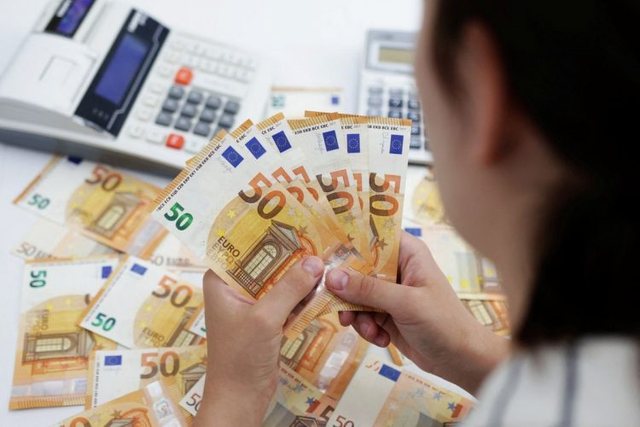
The Euro/Lek exchange rate has started the week with a significant decline. According to the official exchange rate of the Bank of Albania, the Euro was exchanged on Monday for 98.11 Lek, down 0.45 Lek compared to last week.
In fact, the Euro's decline in the foreign exchange market was escalating during the second half of last week. However, since Thursday and Friday were holidays for the state administration, the official exchange rate had not been updated by the Bank of Albania since last Wednesday.
In the first days of last week, the Euro recorded an increase, linked to a temporary increase in demand in the foreign exchange market. But, as has usually happened in recent years, this increase did not last long and within a few days the European currency returned to values similar to the beginning of last week.
Starting from the second half of April, the Euro-Lek exchange rate has undergone a downward shift. Data from recent years show that such a decline is more or less common and is related to the increase in foreign exchange inflows, especially related to the increase in the number of foreign visitors. However, some agents do not rule out a temporary impact of the election campaign on the exchange rate, based on the perception that this period is associated with a higher turnover of foreign currency.
Currently, the Euro-Lek exchange rate is near the threshold of 98 lek and at the same time the lowest historical value, which was recorded on May 6, at the level of 97.99 lek.
The signals from the exchange rate indicate that this year too the market will exert downward pressure on the European currency. After a first quarter at more stable levels, the second quarter, as expected, has started with the depreciation of the Euro. Agents believe that this is a consequence of a more extended tourist season, which brings an increase in foreign exchange inflows even before the start of summer.
Even the tight fiscal policy, with large surpluses, of recent years tends to tighten the supply of Lek over the months, adding to the pressure for appreciation of the local currency. By the end of the quarter, the budget was again in significant surplus, at almost 34 billion Lek, with a further increase of 4% compared to the same period a year earlier.
Last year, further depreciation of the Euro was curbed through large and unprecedented purchases by the Bank of Albania. The Central Bank purchased approximately 933 million euros in the domestic foreign exchange market in 2024, at the highest historical value.
Given that inflation continues to remain below the 3% target, it can be expected that the Bank of Albania will continue to pursue a similar strategy this year, to limit the strengthening of the Lek./ Monitor
Latest news

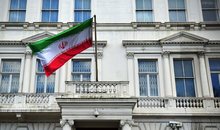

Ceasefire in Ukraine, Trump holds phone conversation with Putin
2025-05-19 18:24:47
56-year-old Albanian man in Italy dies at work after being hit by truck
2025-05-19 17:52:50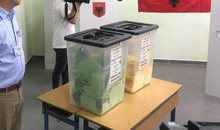


Migrant boat sinks off French coast, 1 dead, more than 60 rescued
2025-05-19 16:58:47
January-March, the number of births fell by 14%
2025-05-19 16:48:50
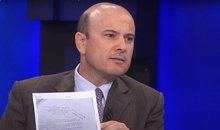
Nothing new from Edi Rama's politically subjugated justice
2025-05-19 16:33:53
Diagnosed with cancer, Biden breaks silence
2025-05-19 16:14:30
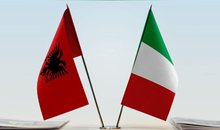
Pensions with Italy, here's what immigrants benefit from
2025-05-19 15:56:54

He fell from the church roof, the priest was brought by helicopter to Tirana
2025-05-19 15:40:16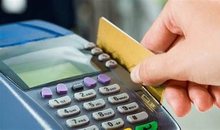
Who spends more money, men or women? The statistics speak for themselves
2025-05-19 15:28:57
Car collides with Fier-Roskovec bus, one injured
2025-05-19 15:24:03
Since... what if...
2025-05-19 15:05:20

"Partizani" file, GJKKO passes Berisha and Malltezi on trial
2025-05-19 14:46:23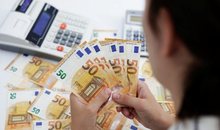
The euro exchange rate starts the week falling, near its historical minimum
2025-05-19 14:32:43
Britain agrees to restore trade and defense ties with the EU
2025-05-19 14:22:32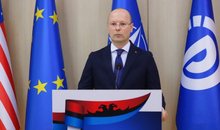

Liberian footballers remain stranded in Albania, football club did not pay them
2025-05-19 14:00:16
Shkodra Police Destroy Over 1,500 Narcotic Plants
2025-05-19 13:48:24
A phone call in Albania becomes a "bone of contention" between Meloni and Macron
2025-05-19 13:35:31
The drop in domestic prices reduces milk imports for January-April by 15%
2025-05-19 13:30:06
EC report: Albania's economy expected to slow down in 2025-2026
2025-05-19 13:18:06

Safet Gjici released from prison due to serious health condition
2025-05-19 12:56:05

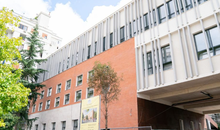


NAME/ Priest falls from church roof in Korça, taken to hospital
2025-05-19 12:08:02
GJKKO returns the file on Asllan Dogjani to SPAK
2025-05-19 12:00:51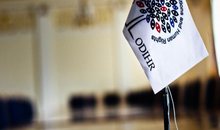
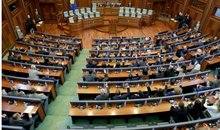
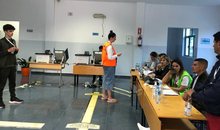


Ajola Xoxa appears in SPAK
2025-05-19 11:19:18
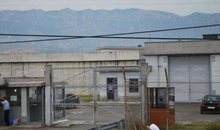
Prisoner ends life in Fushë-Krujë prison
2025-05-19 10:57:03

Diplomats: EU and Britain have agreed to "restart" relations
2025-05-19 10:40:02
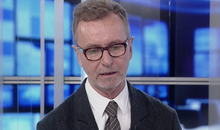

SPAK's measure, Berisha appears before the Special Prosecution Office
2025-05-19 10:18:05
Fier/ 23-year-old man injures his father with a gun
2025-05-19 10:11:21
IHP: 39.1% of Albanians suffer from hypertension
2025-05-19 10:03:34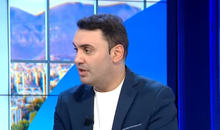
Këlliçi: The US and the US have not reacted to Rama's fourth term
2025-05-19 09:56:02
On a new type of electoral state and a path out of its regimes
2025-05-19 09:55:00
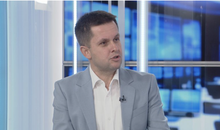

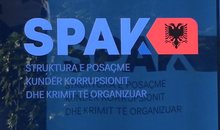
Suspicions of electoral crimes, SPAK and BKH conduct investigations in Elbasan
2025-05-19 09:04:31
GJKKO pritet të vendosë nëse Berisha dhe Malltezi do të kalojnë për gjykim
2025-05-19 08:59:47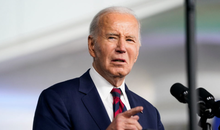
Former US President Joe Biden diagnosed with cancer
2025-05-19 08:51:29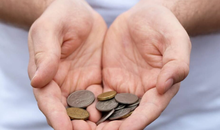
Eurostat: Albania leads Europe with almost half of the population in poverty
2025-05-19 08:35:27
Pro-European Nicusor Dan elected president of Romania
2025-05-19 08:24:10
Horoscope, what do the stars have in store for you today?
2025-05-19 08:11:49
Clear weather, what are the temperatures expected to be during the day?
2025-05-19 07:58:47
Morning Post/ In 2 lines: What mattered yesterday in Albania
2025-05-19 07:44:50
Horoscope signs that will be lucky this week
2025-05-18 21:43:57
Albania's archaeological wealth remains homeless
2025-05-18 21:13:12
Knife attack in Germany, 5 people injured
2025-05-18 20:53:56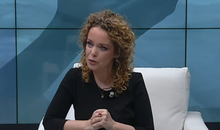

Arbana Osmani returns to television, here's where we'll see her
2025-05-18 20:15:24
PLAN A: Democrat in heart, democrat in mind, democrat in the world
2025-05-18 19:50:49
Pope meets with Zelensky after inauguration Mass
2025-05-18 19:26:03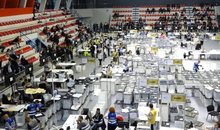


Pope Leo calls for unity, vows not to be an "autocrat"
2025-05-18 18:26:51

Monika Kryemadhi comes as a film actress, shares footage from the filming set
2025-05-18 17:49:01
Video/ Incident in MMA, Albanian athlete loses consciousness after 100 punches
2025-05-18 17:30:14
Israel announces new offensive in Gaza
2025-05-18 17:13:11
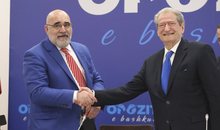


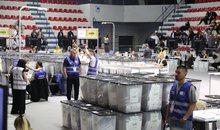
The counting of diaspora votes in Berat and Vlora is completed
2025-05-18 15:51:27
Pope Leo XIV "broke" protocol, hugged his brother at the inauguration ceremony
2025-05-18 15:22:47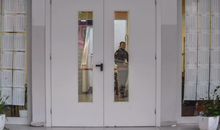

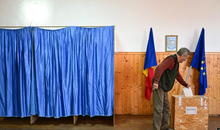
High Romanian turnout in elections that could deepen divisions in the EU
2025-05-18 14:30:03
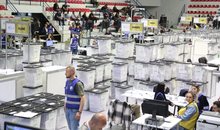
Does the diaspora vote reflect the opinion of immigrants?
2025-05-18 13:47:25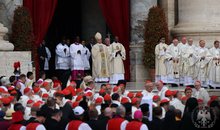
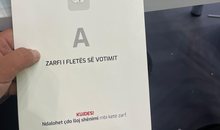


Video/ Footage goes viral, Erdogan forcibly grabs Macron's finger
2025-05-18 12:12:07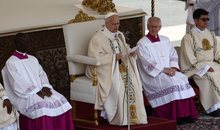
Pope Leo XIV's inauguration mass begins in St. Peter's Square
2025-05-18 11:48:16
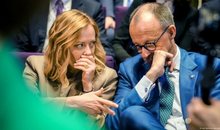
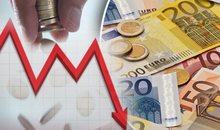
Foreign exchange, May 18, 2025
2025-05-18 10:43:26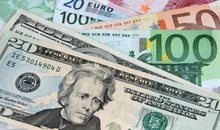
"Rivalry with the Dollar!" The Economist: Can the Euro Become a Global Currency?
2025-05-18 10:28:45

Mexican navy ship crashes into Brooklyn Bridge in New York, 2 dead, 17 injured
2025-05-18 09:37:43
